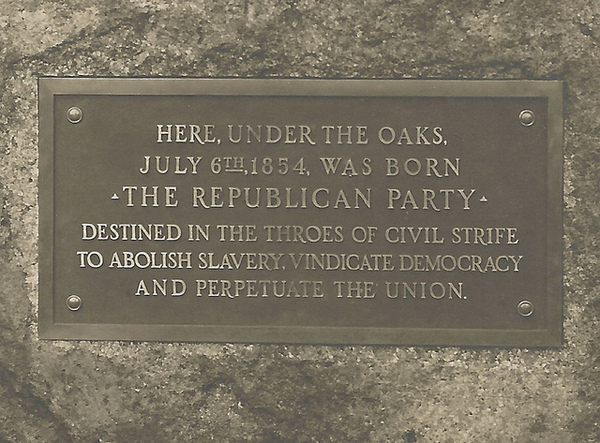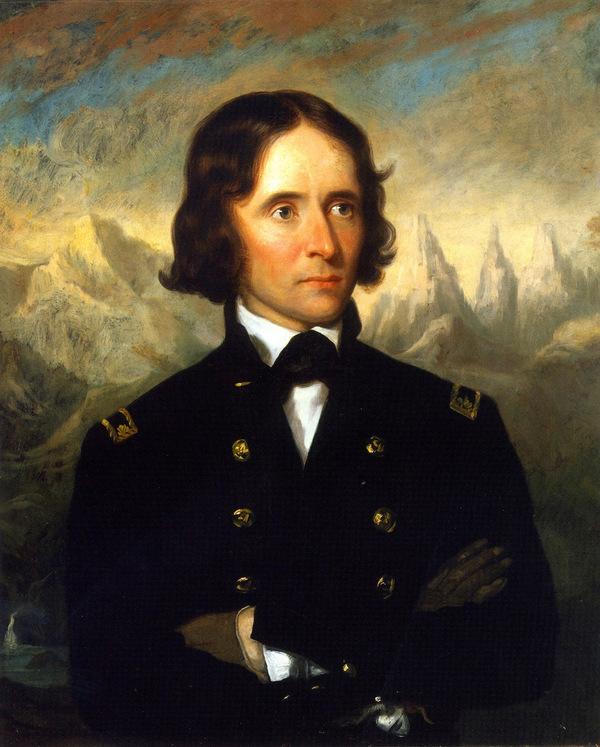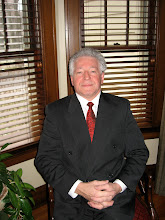Note from Lou:
By Michael Birnbaum July 3~~~WASHINGTON POST
BALTIC CURTAIN | This is part of a series
examining the new front lines in a Cold-War-style confrontation between
Russia and the West.
VORU, Estonia — When unidentified aircraft were speeding toward northern
Estonia one recent day, British fighter jets stationed nearby scrambled
to intercept them. Screaming across the country, they quickly
identified the targets: two Russian fighters and a spy plane. It was
just the latest confrontation between the West and Russia in a region
that has fast become a tripwire for conflict between nuclear
superpowers.
In the two years since Russia annexed Ukraine’s Crimean Peninsula, the
tiny Baltic nations of Estonia, Latvia and Lithuania have taken an
oversize role in facing down Russia’s challenge to the West. The Kremlin
has been building up its military along its border with the former
Soviet satellites. Western allies of the Baltics, worried that the
region is vulnerable, have responded by pouring tanks, warplanes and
soldiers into an area slightly larger than Florida. They will commit
thousands more troops to the three countries and Poland at a summit
starting Friday.
The British decision to leave the European Union makes NATO even more
important as an alliance that binds the West together, NATO leaders say,
amid concerns that the political and economic turbulence unleashed by
the decision will shrink Britain’s outsize role in global affairs. The
departure plans come at a critical time of escalation between Russia and
the West.

“Uncertainty and unpredictability always
create challenges to our security,” NATO Secretary General Jens
Stoltenberg said in an interview. “It is a more unpredictable situation
now than before the U.K. decided to leave.”
Western and Russian warplanes already encounter each other in the Baltic
skies nearly every day. A Russian warplane buzzed a U.S. destroyer in
April, coming within 30 feet and raising fears of an accident that could
quickly escalate into a crisis. Any attack on the Baltics has the
potential for far more global danger than Russia’s intervention in
Ukraine, since the United States and other members of NATO committed to
defend the region when Estonia, Latvia and Lithuania joined the military
alliance in 2004.
Adding to the fears, Russian leaders now routinely raise their
willingness to use nuclear weapons, a habit not seen since the height of
the Cold War in the early 1960s. Western leaders shy away from talk of a
new Cold War. But Russian and Western officials make clear that they
are settling into a confrontation that neither side expects to end
quickly.
“There is a much greater sense that we’re dealing with a long-term
strategic competition with Russia,” said Alexander Vershbow, deputy
secretary general of NATO, the Western military alliance formed during
the Cold War to defend against the Soviet Union. “It will be a very
dangerous relationship that needs to be managed very carefully going
forward,” he said.

A car sits idle in the middle of a potato field in Estonia in May.
(Dmitri Beliakov/For The Washington Post)
NATO’s new top military leader, U.S. Army Gen. Curtis Scaparrotti, said
as he arrived in the spring that the alliance had to be ready to “fight
tonight” against Russia, if necessary. And President Obama quadrupled
military spending in Europe in his budget proposal earlier this year, to
$3.4 billion.
Russia plans to form three new divisions of its military by the end of
the year — tens of thousands of troops — and station them in its
westernmost territories, near the Baltics and Poland. Russian President
Vladimir Putin has framed it as a simple response to NATO activity.
“We are constantly accused of military activity, but where?” Putin said
Thursday. “Only on our own soil. We are supposed to accept as normal the
military buildup on our borders.”
The Baltics, which were forcibly incorporated into the Soviet Union in
1940 and won independence only in 1991, fear they could make a tempting
target for a Kremlin that has in recent years taken a revanchist
attitude toward its neighbors. If they were attacked and NATO failed to
come to their aid, it would break the military alliance, an outcome that
would probably delight Putin. He has declared NATO to be one of
Russia’s biggest strategic threats.
Western leaders have sought to place enough firepower in the Baltics to
deter an attack while avoiding the perception of a military threat to
Russia. Many Russian officials say they view the arrival of Western
tanks at their frontiers as a security risk. NATO military leaders
retort that such fears are exaggerated and that the roughly 2,500 troops
that have been sent to the region could do little to harm the vastly
larger Russian forces arrayed across the border.

Dutch soldiers board their armored personnel carrier while raiding the
woods during a NATO troop exercise in Estonia. (Dmitri Beliakov/For The
Washington Post)
Estonian Special Forces soldiers are shown reading the A area map during
the NATO troop exercise in Estonia. (Dmitri Beliakov/For The Washington
Post)A Lithuanian Humvee driver is seen through a vehicle during the
NATO troop exercise in Estonia. (Dmitri Beliakov/For The Washington
Post)
A recent Rand Corp. study that simulated a Russian invasion found that
Baltic capitals would be overrun within 60 hours. To change the
calculus, the authors recommended a significantly higher Western troop
presence in the region than NATO is currently contemplating — seven
brigades, more than 30,000 troops. A similar NATO-wide crisis war game
in March that simulated an attack from Russia left the West losing to
its foe.
Even without a permanent presence in the Baltics, NATO troops have been
conducting military exercises throughout the region since the Crimea
military operation. Practice for street-to-street combat recently was
held in Voru, a sleepy town of 13,000 people 16 miles from the Russian
border that is better known as a home for an unusual language dialect
than as a future spark plug for world war. An international coalition of
troops, including Americans, fought from the outskirts of town into the
city center, taking over an old municipal archive, then an abandoned
factory and a gas station. The fighting intensified on Paju Street,
where 19th-century wooden homes sit in the shade.

A recent Rand Corp. study that simulated a Russian invasion found
that Baltic capitals would be overrun within 60 hours. To change the
calculus, the authors recommended a significantly higher Western troop
presence in the region than NATO is currently contemplating — seven
brigades, more than 30,000 troops. A similar NATO-wide crisis war game
in March that simulated an attack from Russia left the West losing to
its foe.
Even without a permanent presence in the Baltics, NATO
troops have been conducting military exercises throughout the region
since the Crimea military operation. Practice for street-to-street
combat recently was held in Voru, a sleepy town of 13,000 people
16 miles from the Russian border that is better known as a home for an
unusual language dialect than as a future spark plug for world war. An
international coalition of troops, including Americans, fought from the
outskirts of town into the city center, taking over an old municipal
archive, then an abandoned factory and a gas station. The fighting
intensified on Paju Street, where 19th-century wooden homes sit in the
shadow of a hulking Soviet-era apartment building.
The soldiers fought right past the computer repair shop where Roman
Jastrebov, 25, was working on a Saturday morning as his 4-year-old
daughter played. He said he was delighted by the war games even if he
“almost got shot in the face with a shell.”
“It was like the Fourth of July. It’s like a big playground,” he said.
But he was skeptical that the combat practice would save Estonia if its
worst fears of a Russian invasion came to pass.
“It’s not like we’re going to be saved from it if there’s a war. One
tank division could take us,” he said.
Others were less happy about the street-to-street fighting that
paralyzed the town for hours.
“This is just to scare people,” said Kertu Luisk, 24, a cosmetology
trainee whose hair salon was in the thick of the fighting. “To see this
kind of show, I’d rather go to the theater. None of us wants to think
war is possible. But it seems to me that the real risk is there.”
The Baltics’ flat, open terrain means that the countries could be
overrun faster than NATO could scramble a response from elsewhere in
Europe, leading to the focus on discouraging Russia from acting in the
first place, Western leaders say.

Members of an Estonian heavy-caliber machine-gun team chat with a local
resident. (Dmitri Beliakov/For The Washington Post)
Along Estonia’s forested border with Russia, the only demarcation of the
frontier is a series of orange-and-green poles erected every several
dozen yards. A new chain-link fence won’t be finished for at least
another year, and it would do little to stop an invasion.
NATO officials plan to send a battalion of about a thousand troops to
each Baltic nation and Poland, about 4,000 in total. The United States
originally considered committing about 2,000 soldiers to the effort, but
it recently halved its offer, NATO diplomats and officials say, amid
growing political pressure to push Europe to commit more to its own
defense. Obama recently derided “free riders” on American military
might, while Donald Trump, the presumptive Republican nominee for
president, has declared NATO obsolete.
That has left Baltic leaders — and NATO military planners — balancing
what they feel they need with what they think they can get.

“We don’t want to return to the Cold War era, tank for tank, soldier for
soldier,” said Estonian Defense Minister Hannes Hanso. “But in the
Baltic Sea, Russia is flying military aircraft almost daily, sometimes
five times a day. It would be irresponsible not to respond.”
“What we are doing is reacting to what they’re doing,” Hanso said.
A drive across the Baltics reveals a constant hum of military activity.
Camouflaged convoys snake down dim roads late at night. Armored
personnel carriers idle alongside fields. Belgian, British and Spanish
fighter jets thunder across the skies. Before the Crimean annexation, it
was rare to see a combat vehicle in the Baltics. Now they are
omnipresent, amid a constant cycle of military maneuvers and rotations.
The biggest military operation in Europe this year is underway in
Poland, where 25,000 troops from 24 nations are engaged in combat
exercises that include live fire from tanks.
The sustained rhythm can be jarring to those who live in the areas seen
as most vulnerable. Narva, an Estonian border city that is more than 80
percent Russian-speaking, is often depicted as Russia’s first target if
it were to move on the Baltics. But residents

Narva’s streets are in decent shape, unlike the rutted roads in
Ivangorod, the Russian town just across the river. Narva residents’
salaries and pensions are paid according to Estonian standards, while
their Russian neighbors’ earnings have lost half their value with the
collapse of the ruble since 2014.
“People in Narva love Putin. But it’s a platonic love. They don’t want
him here,” said Sergei Stepanov, the editor of the local newspaper,
Narvskaya Gazeta. “People here are not stupid. They can just cross the
border and compare how things are in Russia.”
Ultimately, Estonian leaders say, the threat from Russia has forced them
to unite under pressure.
“Five or six years ago, we would have had arguments” about holding
extensive military exercises, said Hanso, the defense minister. “Putin
is our best recruiter.”
---{-=@
HICKOK















